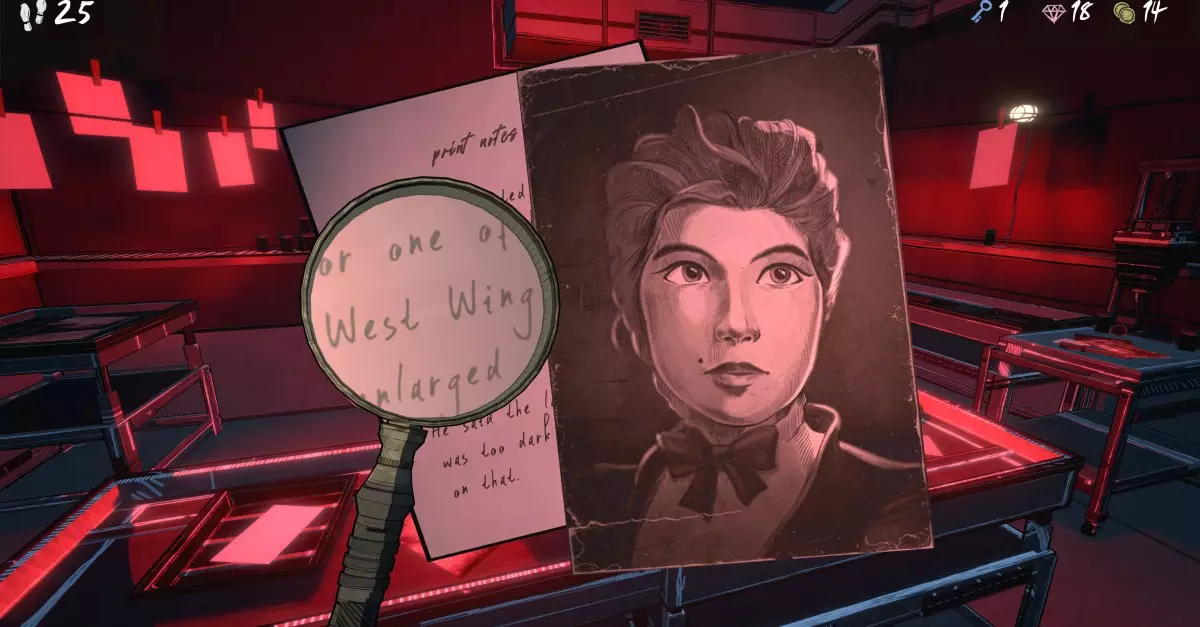In a landscape where gaming thrives on innovation and creativity, the recent rise of an unofficial mobile port of the much-acclaimed game, Blue Prince, has epitomized both the allure and danger of the gaming niche. Developers Dogubomb and publisher Raw Fury have made headlines, but hardly for the right reasons. After they reported finding a mobile version of Blue Prince on the App Store, claiming it was an unauthorized clone, it was mysteriously yanked from existence shortly after the announcement. This striking instance draws attention to the persistent issues of intellectual property in the digital world, the challenges of app regulation by platforms like Apple, and the ethical responsibilities of developers and consumers alike.
The Allure of Accessibility
The growth of mobile gaming has ushered in a new era for the industry, expanding the accessibility of games like Blue Prince, originally available only on Steam, Xbox, and PlayStation. In a culture where time is of the essence, and users seek experiences while navigating their daily routines, mobile ports of popular titles offer a captivating temptation. However, the excitement surrounding such accessibility is often laced with ethical quandaries. The unauthorized port of Blue Prince was structured ostensibly to mimic its original, presenting users with screenshots, descriptions, and even icons resembling the game, leading many to relish the chance of gaming on their phones without the official backing. It’s a double-edged sword: the desire to democratize access to quality games often compromises creators’ rights and hard-earned revenue.
A Glimpse into the Clones
Upon further investigation, the legitimacy of this port was highly dubious. The seller’s name, “Samet Altinay,” had little to no affiliation with Dogubomb or Blue Prince. This disconnect highlights a greater issue—many consumers may unwittingly fund obligatory clones, robbing original creators of their deserved praise and profits. This particular clone even charged a fee of $9.99, fooling eager gamers into submission. Jay Peters, the news editor for The Verge who uncovered the app, embarked on the quest to unravel the authenticity of the game, only to reveal a shoddy replica marred by significant glitches. His experience resonates with a broader concern: these unofficial applications can tarnish the reputation of the original by associating it with a poor gaming experience.
The Breakdown of Quality Control
Apple’s failure to catch the fraudulent version of Blue Prince before it had a chance to reach consumers is a significant testament to the breakdown of app review procedures. With the app initially rising as the #8 paid application in the Entertainment category, it was a clear indication that users were curious enough to circumvent the official channels. It’s imperative for tech giants to implement stringent checks, setting an industry standard that promotes authentic creations. The allure of a ‘quick fix’ often comes with a cost—potential bugs and poor experiences could tarnish not only the reputation of the original game but also make users wary of future investments in legitimate products.
The Consequences of Inaction
Swift responses from Apple, at least in a public relations sense, seem absent, raising questions about brand accountability. As consumers, we must ask ourselves: should we rush to indulge in the allure of accessible, unofficial alternatives? The temptation can morph into disillusionment when faced with glitches—like falling through floors within gameplay—that frustrate the very spirit of immersive experiences. As the developers of Blue Prince clarified, there are no immediate plans for an official iOS port, further immobilizing the anxious fans. The silence speaks volumes about the rapid pace of technology juxtaposed with the necessity of accountability.
The Community’s Role
In such a rapidly evolving digital age, the gaming community must band together to support original creators. As players, we hold the power not only to advocate for our favorite games but also to cultivate an ecosystem that prioritizes creativity and ethical practices. By reporting unauthorized clones and supporting legitimate creators, players can help reshape a healthier and more respectful gaming environment. The yet uncanny allure of clones persists; however, it’s our responsibility to distinguish between a genuine gaming experience and deception wrapped in enticing visuals.

